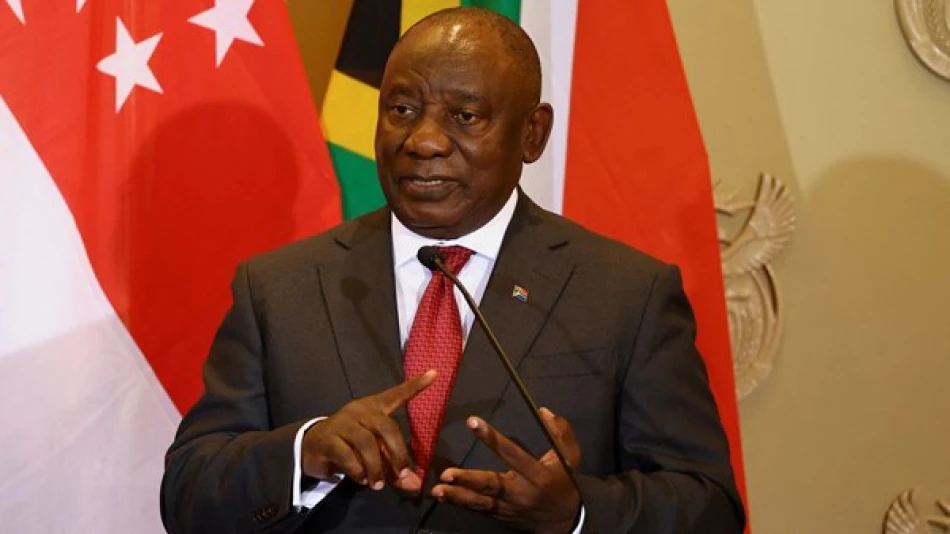
South Africa Urges Russia-Ukraine Talks to End Conflict, Calls for Diplomatic Resolution
South Africa's Ramaphosa Pushes for Russia-Ukraine Summit as Trump's Peace Initiative Stalls
South African President Cyril Ramaphosa is positioning himself as a key diplomatic broker in the Russia-Ukraine conflict, calling for urgent bilateral and trilateral meetings between Moscow, Kyiv, and Washington. His intervention comes as President Trump's initial momentum for peace talks appears to be losing steam, despite recent separate meetings with both Volodymyr Zelensky and Vladimir Putin.
Diplomatic Push from the Global South
Following phone conversations with Ukrainian President Zelensky and subsequent calls with French President Emmanuel Macron and Finnish President Alexander Stubb, Ramaphosa emphasized the critical need for high-level diplomatic engagement. The South African presidency stated that such meetings are "necessary to demonstrate the firm commitment of all parties" to ending the conflict.
Zelensky responded positively to the outreach, reaffirming on social media his "readiness for any form of meeting with the Russian president." This represents a notable diplomatic opening, particularly given the recent cooling of prospects for direct negotiations.
South Africa's Strategic Positioning
Ramaphosa's intervention is strategically timed and geographically significant. As current chair of the G20, South Africa occupies a unique position to facilitate dialogue between major powers. The country's historical non-aligned stance and its membership in BRICS alongside Russia gives it potential credibility with Moscow that Western mediators might lack.
This diplomatic initiative also reflects South Africa's broader foreign policy strategy of positioning itself as a leader among Global South nations, offering an alternative to Western-led peace processes. Ramaphosa had previously communicated with Putin on Monday, establishing direct channels with all key parties.
Trump's Stalled Peace Promise
The South African intervention highlights the challenges facing Trump's campaign promise to quickly resolve the Ukraine conflict. While Trump has met separately with both Zelensky and Putin in recent weeks, the prospects for a breakthrough appear to be diminishing rather than improving.
This development suggests that Trump may need to rely more heavily on international partners and multilateral frameworks than his administration initially anticipated. The involvement of European leaders like Macron, alongside African leadership through Ramaphosa, indicates a more complex diplomatic landscape than the bilateral approach Trump initially favored.
Market and Geopolitical Implications
For global markets, Ramaphosa's diplomatic push represents both opportunity and uncertainty. Energy markets, particularly sensitive to any shifts in the conflict's trajectory, may see volatility as investors weigh the prospects of renewed negotiations against the risk of continued stalemate.
The involvement of multiple international actors also suggests that any eventual peace framework will likely require broader international guarantees and reconstruction commitments, potentially creating new investment opportunities in post-conflict Ukraine while maintaining pressure on Russian energy exports.
Ramaphosa's planned calls with additional European leaders in the coming weeks signal an intensifying diplomatic campaign that could either break the current deadlock or highlight the intractable nature of the conflict's core issues.
Most Viewed News

 Layla Al Mansoori
Layla Al Mansoori






